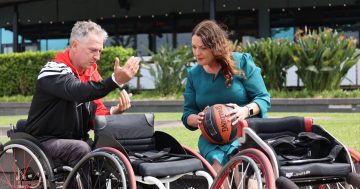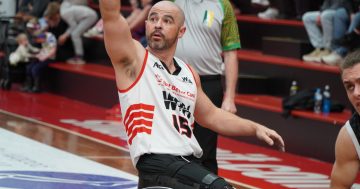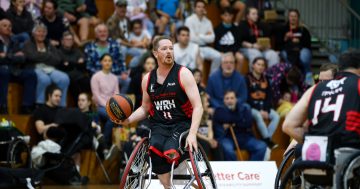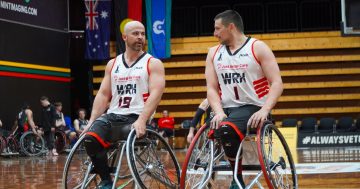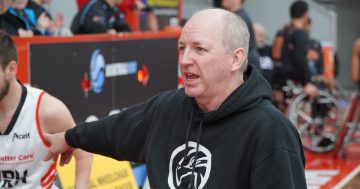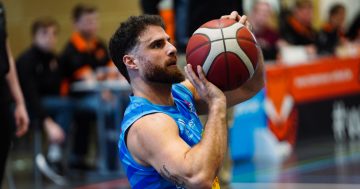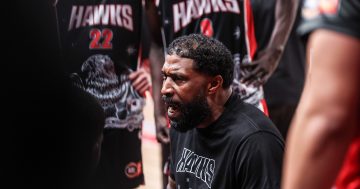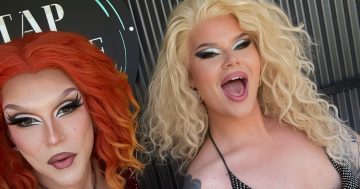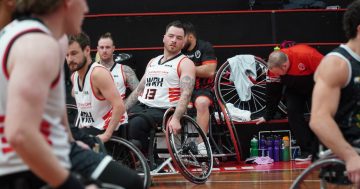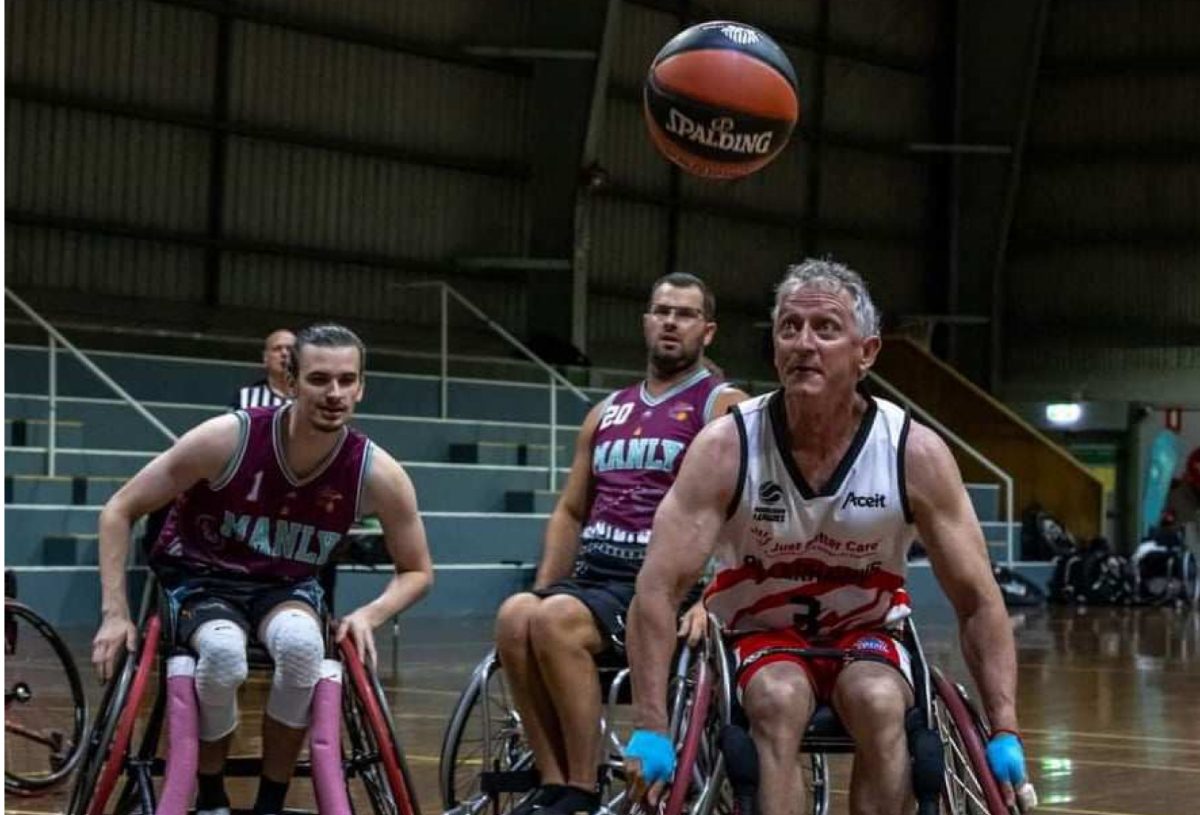
Wheelchair basketball transformed Brian Gardner’s life after a car accident left him with a minor brain injury. Photo: Supplied.
Before Brian Gardner found sport, he was told he would deteriorate by 10-12 per cent per year and within five years be in a full-time care facility after a car accident in 2012 left him with a minor spinal cord injury, numerous damaged discs and a minor brain injury.
However, 12 years on and now almost fully independent and with a driver’s licence, Gardner credits wheelchair basketball for changing his life.
Gardner said from the accident, he developed “secondary dystonia”, a neuromuscular condition whereby a person experiences involuntary muscle contractions and “dystonic storms”, like a seizure.
“I needed a full-time carer for the first five or six years,” he said.
“In fact the doctors had told my carer that I would slowly deteriorate and within five years be in a full-time care facility.
“The outlook was bleak. My career and whole life had been taken from me. I couldn’t remember my daughter’s childhood amongst many other things.
“I even drove my carer to ‘carer burnout’.”
He admitted it wasn’t much fun for anyone around him and he went to a dark place.
“Then I found sport,” he said.
“In about 2015 or 2016, with the help of my carer, I found Wheelchair Sports NSW who introduced me to handcycling.
“This gave me a newfound freedom.”
The journey wasn’t without hurdles, as Gardner faced various issues related to his condition. However, he pushed through, participating in a Sydney to ‘Gong ride in 2019.
“People tried to get me into basketball and at that point in time, my brain was still reasonably fresh from the car accident,” he said.
By 2017, Gardner decided to give wheelchair basketball a go.
Acknowledging the initial challenges, he said, “As anticipated, it was too much for my brain to process, and I could only last 10 minutes on court.
“Initially I decided this obviously wasn’t going to work.”
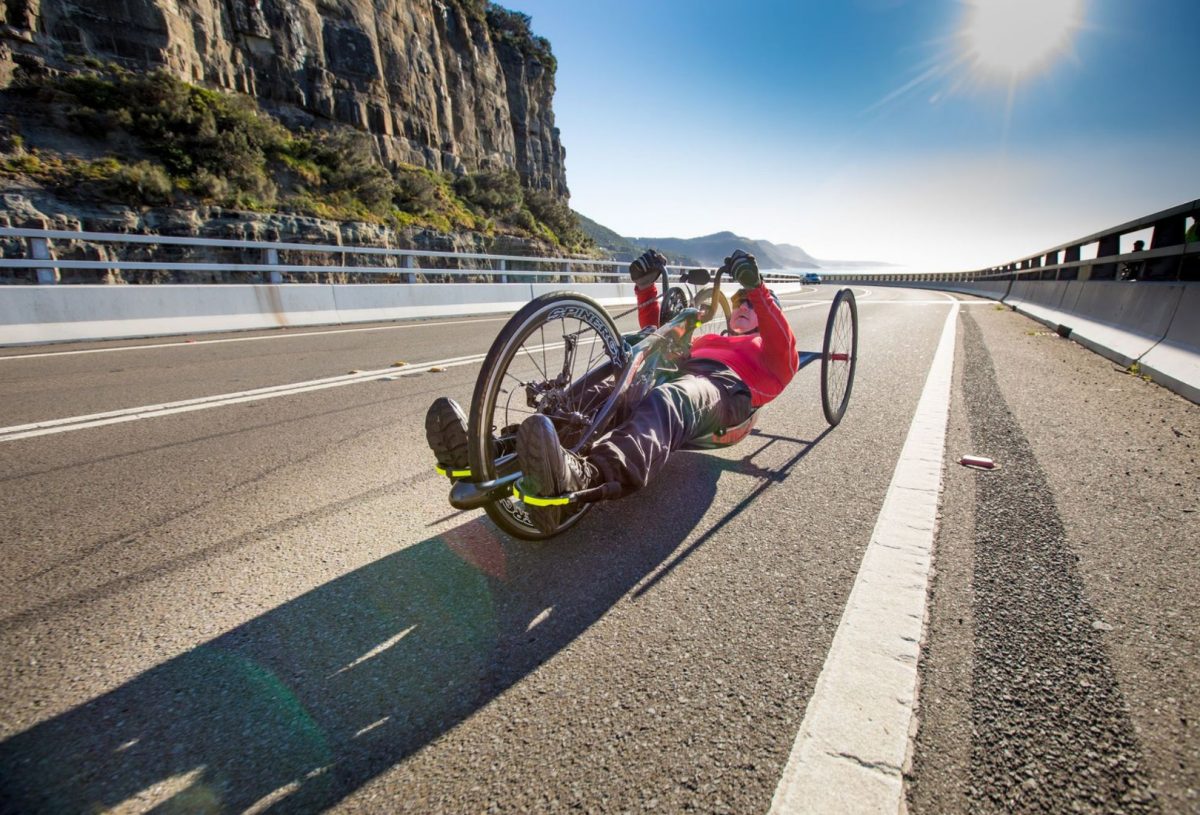
Gardner started with handcycling, before joining wheelchair basketball, leading him to the Sydney to Gong ride in 2019. Photo: Supplied.
However, after a couple of months of reflection, Gardner returned to join the junior group, setting a timer for five minutes and gradually progressing to playing the whole two-hour session.
“I was unable to communicate on court or follow a game plan – but I stuck at it and eventually after 12 months I was able to play the whole two-hour session and started being able to communicate on court,” he said.
“All the stimulus, in controlled time portions, led to improved cognitive function.
“To achieve this I also practised alone one additional morning each week. Along with the handcycling and one gym session a week, I was far exceeding the doctor’s expectations of recovery.”
Eventually, Gardner improved enough to progress to playing in the development squad.
While the step up was a challenge, he said he learnt a lot about his condition and how to manage it.
“With these new learnings I was able to improve coping mechanisms and strategies and apply them to, not only basketball, but also to the handcycling and everything else in life,” he said.
“I don’t recall what year pre-COVID, but I was given the opportunity to train with our national league team, the Roller Hawks, and continue to train with them to this day.
“I have no delusions that I am at their level – my coordination and processing speed just isn’t high enough – but I do like to think I hold my own ground half the time.
“I do my best to take what I learn there and bring it back down to the junior group and help the development of new players.
“It really gives me a feeling of accomplishment when I see someone implementing something I have taught them – especially the kids.”
Gardner said it was important to foster a pathway from beginner to national league level, acknowledging that it’s “not an easy pathway; it’s a lot of hard work”.
He also joined the club management committee and is now club grants officer for the Wollongong Roller Hawks, and hub leader for the junior and development group.
“Being involved in this way has been fantastic for my mental health,” he said.
“It gives me purpose and a feeling of contributing and achieving.”
In reflecting on the benefits of wheelchair basketball, Gardner said, “It can be a social outlet, not just for the players but also family and carers. It can be rehabilitative. It’s damn good exercise. It can give you something to strive for, whether that be learning the skills, playing in competition – all the way up to Paralympian.”
Wheelchair basketball returns in February at the Shellharbour City Stadium.









